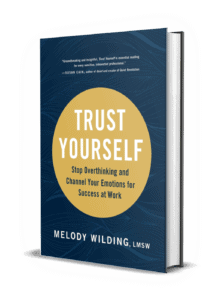A few years ago, I set out to create a new mindfulness habit: going to yoga once a week. In the first class, I nervously put down my mat in the back, hoping no one would notice how inflexible I was. I felt awkward and extremely self-conscious. During the practice, my mind swirled judgemental thoughts and non-stop comparisons to the other, more advanced students around me.
During one very difficult class, the instructor said something that transformed how I approached the practice. She said, “Showing up is the hardest part. Your job is to keep coming back to the mat and starting fresh each time.”
These words sum up the mindfulness concept known as Beginner’s Mind, which refers to approaching situations with an attitude of openness and curiosity. It’s based on a Zen teaching that explains, “In the beginner’s mind there are many possibilities, in the expert’s mind there are few.“
Whether you’re trying to tackle a challenging assignment, push the limits of your creativity, or otherwise advance your career, Beginner’s Mind can help you approach your work with fresh eyes and levelheadedness.
Benefits of Beginner’s Mind
Most of us go through life trapped within assumptions and expectations. A fixation on how things “should be” or “must be” keeps your thinking close-minded and our behavior from being open to change. Beginner’s mind, on the other hand, helps you continuously grow:
When your mind is open:
- You’re receptive to ideas and possibilities
- You see creative solutions to challenges because of your expanded perspective
- You ask for help more readily, which accelerates your progress
- You view failure as feedback (and not a reason to stop)
- You’re less anxious because you more easily release worry
How to Cultivate a Beginner’s Mind
1. Views risks as experimentation
Novelty sparks learning, so seeking out interesting experiences is a great way to engage your Beginner’s Mind. Give yourself at least 20 hours to try out any new habit. Research suggests this enough time to learn something new without it being overwhelming.
I have my coaching clients design their own 30-day challenges. During a sprint, they test pilot new habits, learn new skills, or even experiment with new career paths. This approach helps them get more comfortable with risk, uncertainty, and ambiguity.
2. Let go of expectations
Don’t worry about having the future perfectly planned out. With a beginner’s mindset, you always have a choice to start fresh. If you’re getting caught up in “should’s”, try asking yourself “what would this look like if it were easy?” or “how could I make this fun?”
3. Monitor your internal world
As you pursue new habits, risks, and possibilities, you may face the voice of your inner critic. Stopping these thoughts isn’t effective. Deal with them by picturing your thoughts as clouds. Notice them, but let them come and go non-judgmentally like the weather.
4. Channel your curiosity
Asking questions is at the heart of a beginner’s mind. Boost your odds at achieving success by honing your skills at self-inquiry. Beginners aren’t afraid to ask for help so seek out the advice of mentors or join a community where you feel safe speaking up.









